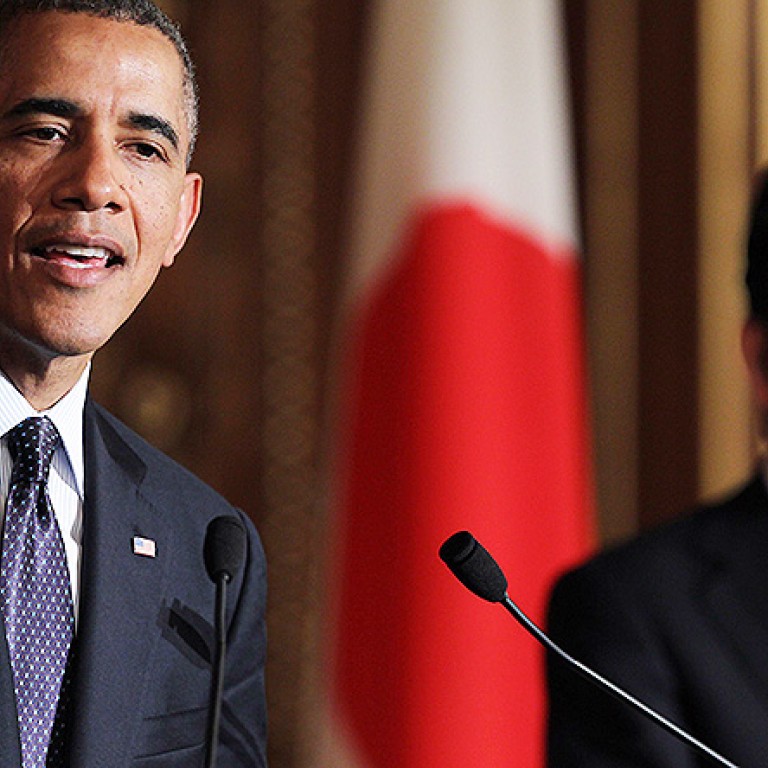
International arbitration the way to go for Asia's maritime disputes
Frank Ching believes territorial disputes in Asian seas can be settled through the world court, if acceptance of its rule isn't selective
Media attention during Barack Obama's four-nation Asian trip focused, understandably perhaps, on the three countries that are US allies - Japan, South Korea and the Philippines - and, in particular, on developments with military significance, such as the American president's assurance that the US-Japan security treaty covered the Senkaku, or Diaoyu, islands claimed by China.
Conflict, after all, is much more newsworthy than peace. So when Malaysian Prime Minister Najib Razak issued a joint statement with Obama supporting the use of international arbitration to resolve South China Sea disputes, it received scant coverage.
If Japan were to change its stance and accept the court's jurisdiction on its dispute with China, it would put great pressure on Beijing to also accept international arbitration
That was unfortunate. Malaysia, after all, is a claimant in these disputes, although it appears to have adopted a deliberately low profile.
With Malaysia, the dispute is over James Shoal, which China calls Zengmu Reef. When Xinhua reported in February that a Chinese flotilla had patrolled waters off the reef, for example, Malaysia did not issue a protest but insisted that no such incident had taken place.
It is important that Malaysia has now publicly endorsed the principle of "resolving territorial and maritime disputes through peaceful means, including international arbitration, as warranted".
On one level, it signalled its acceptance of the principle of international arbitration. In fact, Malaysia has a history of accepting rulings of the International Court of Justice in settling disputes with its neighbours; Indonesia in 2002 and Singapore in 2008.
On another level, Malaysia was lending support to the Philippines, which is pursuing an arbitration case regarding its disputes with China. Beijing, however, has rejected the dispute-settlement mechanism provided for by the UN Convention on the Law of the Sea and refuses to take part in arbitration proceedings.
In one way or another, all four countries on Obama's itinerary are involved in maritime disputes with China, and also among themselves. There are disputes between Japan and South Korea and between Malaysia and the Philippines.
There is a tendency for countries to reject arbitration when they are in control of the disputed territory but to be open to settlement by the world court in cases where the territory is not under their control.
Thus, Japan has agreed to let the International Court of Justice decide on Takeshima, an island known to South Korea as Dokdo. But Seoul, which is in control, refuses to arbitrate. However, Japan refuses to let the world court resolve its dispute with China over the Senkaku/Diaoyu islands and, in fact, won't acknowledge that there is a dispute.
If Japan were to change its stance and accept the court's jurisdiction on its dispute with China, it would put great pressure on Beijing to also accept international arbitration in the resolution of disputes in both the East China and South China seas.
This would be a big step forward for the rule of law in international relations.

